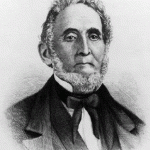One of the most repeated passages of scripture in contemporary Mormonism is 2 Peter 1:2-8:
Grace and peace be multiplied unto you through the knowledge of God, and of Jesus our Lord, according as his divine power hath given unto us all things that pertain unto life and godliness, through the knowledge of him that hath called us to glory and virtue: whereby are given unto us exceeding great and precious promises: that by these ye might be partakers of the divine nature, having escaped the corruption that is in the world through lust. And beside this, giving all diligence, add to your faith virtue; and to virtue knowledge; and to knowledge temperance; and to temperance patience; and to patience godliness; and to godliness brotherly kindness; and to brotherly kindness charity. For if these things be in you, and abound, they make you that ye shall neither be barren nor unfruitful in the knowledge of our Lord Jesus Christ.
Though probably not a letter written by Peter himself, 2 Peter is a late-first-century letter defending Peter's teaching. Its writer, probably someone who knew and worked with the apostle Peter, formulates his letter as if it were Peter's final testimony (not an uncommon rhetorical strategy at the time), and ancient readers would have understood it to accurately reflect Peter's teaching. To make things easier, I will refer to its author as Peter.
Just before the verses I've quoted, Peter introduces himself as an apostle and says that he is writing to "those who have received a faith equal in standing to ours," in other words a faith equal in standing to that of the apostles.
Peter's beginning point is an important one: the faith of the members of any congregation is of no less standing before God than is the faith of the apostles and prophets. Though we recognize the authority of those who have ecclesiastical office, to recognize that hierarchy is not to recognize their faith as closer to God than ours, as more valuable than ours, or as more likely to produce righteousness.
If 2 Nephi 26:33 is true:
[The Lord] inviteth them all to come unto him and partake of his goodness; and he denieth none that come unto him, black and white, bond and free, male and female; and he remembereth the heathen; and all are alike unto God, both Jew and Gentile.
Then surely all the faithful are alike unto God, whether prophet or sacrament meeting usher or someone with no official calling to serve. All have equal access to the same privileges and blessings.
Specifically, the faithful are given "all things that pertain unto [are necessary for] life and godliness" (2 Pet. 1:3). (I suspect that "life and godliness" is a hendiadys meaning "godly life," just as "nice and warm" means "nicely warm.") Peter tells us how to live with reverence for and loyalty to God, how to share in God's nature (verse 4) in living our lives.
Latter-day Saints, especially those in the Church's Young Women program, recite the list of virtues in verses 5-7 with regularity, though perhaps they don't usually explicitly see that the list is climactic or additive: use your faith to create virtue; use that virtue to gain knowledge; use knowledge to achieve temperance (self-control); by means of self-control, learn patient perseverance; by perseverance, learn godliness; and allow godly life to teach you familial love for others of faith. Finally, allow familial love to lead you to charity, the highest of Christian virtues.
Two things follow from living the life to which Peter admonishes us. The first is that we will neither be useless nor unfruitful (another hendiadys; 2 Pet. 1:8). In other words, we will be productive. What will we produce? Deeper knowledge of the Lord.
Given that our knowledge begins in faith and is finally produced by Christ-like love, the knowledge we are promised is not theological knowledge so much as knowledge by acquaintance, like the knowledge we have of someone we love. We may not be able to explain that knowledge abstractly, any more than we can explain our love for a parent, spouse, or child. But we will live that love.
To live the Christian virtues as they lead from one to another is to come to the Lord and know him as a person. It is to enter into a relationship of love with God.





